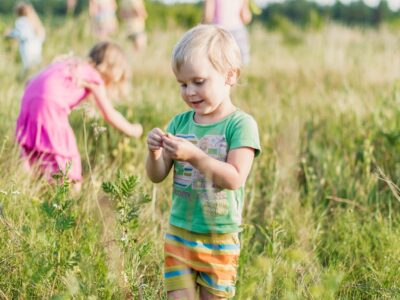When the Most Reverend Patrick Barry, Bishop of St. Augustine and Reverend Mother M. Gerald Barry, prioress General of the Dominican Sisters of Adrian, Michigan brought their visions of knowledge, truth-seeking, and service to the 40 acres in Miami Shores that would become Barry College for Women in 1940, little did they know how high their dreams—or how vast their grounds—would soar.
With its main campus now expanded to 122 acres—along with satellites in eight counties in Florida as well as in the Bahamas and the U.S. Virgin Islands—Barry University, officially co-ed since the 70s, has had six Adrian Dominican as president since its inception. Over recent years, the Order’s 2016 General Chapter Enactment on climate change has infused Barry’s operational policies, putting Creation Care at center stage in its Mission’s expectation that the Barry community “Recognize the Sacredness of the Earth.”
“From the moment people interact with Barry University,” says Dr. Roxanne Davies, Barry’s Associate Vice-President for Mission and Student Engagement, “they are greeted with the ‘Barry Green’ mission. They’re given a water bottle that they can use at hydration stations all over campus; this gesture promotes an immediate awareness around what can be done at an individual level.”
Sustainability Programs in Science and Law
Given Barry’s prime South Florida location, its Biology program—which houses many tracks oriented towards students’ varied goals upon graduation—offers majors yearlong access not only to the Atlantic waters, but also to the Everglades and the continental United States’ only living coral reef. Surrounded by such an abundance of nearby sites for hands-on study, Marine Biology students in particular play starring roles in carrying out the Adrian Dominican Sisters’ call to action to “mitigate significantly our impact on climate change and ecological degradation.” On campus, eight teaching labs, 12 individual faculty labs, a shared‐equipment room, a laboratory prep room, and an aquarium facility—including a saltwater fish aquarium and freshwater tanks—supplement student learning opportunities.
At the turn of the millennium, Barry broadened its learning landscape by adding the Dwayne O. Andreas School of Law to its campus. Over the past two decades, the University has made a name for itself in environmental law by establishing Barry’s Center for Advanced Study of Environmental and Earth Law, which offers programs that are both practical and visionary. Barry law students intent on bringing their Earth-friendly passions into their legal practice can obtain an Honors Certificate in Environmental and Earth Law, whose curriculum includes a diverse subset of sustainability-themed courses such as—but not limited to—Hazardous Waste Law, Climate Change Law and Policy, Animal Law and Practice, Energy Law, Water Pollution Law, International Law of the Sea, Oil and Gas Law, and Toxic Torts. The Certificate program also provides its students in-house clinical experience at the Environmental and Earth Law Clinic and writing opportunities with the Environmental and Earth Law Journal, as well as relevant conferences such as the Environmental and Earth Law Summit and the Future Generations Conference. Barry law students can also seek out Earth-friendly legal externships, as well as tour the state’s springs and manatee habitats, and attend networking events with environmental lawyers and nonprofits. Barry law students eager to put their classroom and internship experience into practice have founded their own organizations: the Environmental Law Society and the Student Animal Legal Defense Fund.
Barry Law also houses the Center for Earth Jurisprudence (CEJ), which, since its inception in 2006, has taken noteworthy strides in the emerging field of law the Center’s name reflects. Weaving environmental ethics into the practice of law, Earth Jurisprudence strives to promote policy, laws, and governance structures that protect and preserve all interdependent beings and ecosystems existing in the natural world. Recognizing the unprecedented ecological crises that imperil the Earth’s ecosystems, CEJ educates its students to look beyond the typical cost-benefit analysis rhetoric at the core of most current laws and instead consider the viability of the planet for future generations.
In 2018, CEJ secured nearly $300,000 in grant funds from the Southeast Sustainability Director’s Network, a consortium of over 50 local government officials in the region who converged through the mission to construct a viable framework for community sustainability in the Southeast. Not only have these monies translated into increased scholarships for Barry law students choosing to focus in Earth Jurisprudence, but they’ve also created opportunities for implementing initiatives that positively impact local resiliency. CEJ’s Director Margaret Stewart said that with the campus now newly reopened, the Center’s project to plant gardens with the local Volusia County’s Boys and Girls Club will soon be underway, noting that CEJ takes the word “sustainability” seriously, meaning that it seeks to create green infrastructure that ensures that its efforts flourish well beyond the scope of this specific grant cycle. Besides setting in motion eco-friendly collaborations between Barry and its outlying communities, she said, the CEJ is also utilizing grant funds to formulate a sustainability curriculum to share with the Southeastern network, and eventually with the entire country and world.
“It’s built into the fabric of the Barry community,” she stated, recalling the University’s Core Commitments. “We were green before green was cool,” she added, emphasizing the extent to which protecting the Earth in tandem with engaging with local communities has always been at the heart of Barry’s institutional principles.
Barry Promotes Sustainability On- and Off-Campus
Given the prominence of Earth-centered initiatives in Barry’s academic programs, it’s no surprise that the University as a whole strives to raise environmental awareness. BEST, Barry’s Ecological Sustainability Team works across campus to tackle eco-friendly issues. Every April, Barry hosts Earth Week to showcase eco-friendly efforts on and around campus. With planet-based activities such as the Earth Day Carnival, Sustainability Saturday, and a Care for Creation Mass, faith in and service to our common home and its Creator join ranks in a celebratory atmosphere.
Barry students, faculty, and staff also collaborate with local communities through partnerships led by the Center for Community Service Initiatives. Groups may choose to help maintain the Barry Urban Garden or participate in off-campus projects. For instance, this spring, a group traveled to Virginia Key Beach Park—the only beach in Miami available to People of color during the segregation era—to remove non-native, invasive plants that harm the local ecosystem.
Perhaps the University’s most transformational sustainability project occurs off-campus at the Adrian Dominican Motherhouse—where Barry first existed as a concept. Through the De Porres Center for Ethical Leadership’s Environmental Leadership Experience program, Barry students join their peers from
Siena Heights University—an Adrian Dominican institution in Adrian—in a 10-day summer adventure during which they study agricultural ecosystems through the lens of environmental stewardship. Working both at the Motherhouse Permaculture site and throughout the region outlying Adrian, Barry students are called to implement sustainability initiatives based on their hands-on experience upon their return to campus. So devoted to the cause of nurturing young environmental activists are the Sisters that they cover the entire cost of Barry students’ travel to Michigan, in addition to providing free room and board.
Speaking of the Adrian Sisters’ commitment to promoting sustainability, Davies remarked, “They put their money where their mouth is.”





 Copyright
2024
Root and Vine
Copyright
2024
Root and Vine